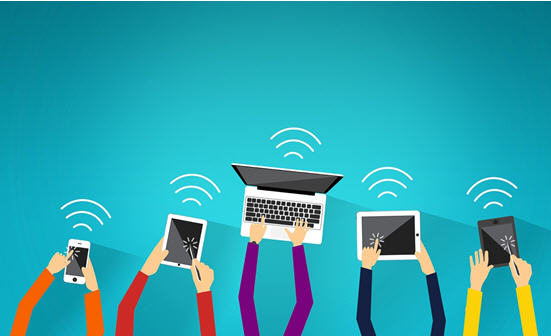Krisztina Varsányi - 07.02.2018 15:53
Welche (positive oder evtl. negative) Rolle spielen die Medien (Fernsehen, Internet, soziale Netzwerke usw.) in der Wertevermittlung. Haben sie deiner Meinung nach eine Veranwortung? / What positive and negative effects do media (television, internet, social network) have on transferring values? Are they in your opinion responsible in some way?
Regina Szatkowska - 21.04.2018 11:04
Here are my thoughts on media and transferring values.
Media and transferring values
By Regina Szatkowska, VIII LO Cracow/Poland
The media represents the dominant mean of social communication, giving to the individuals and to the groups a permanent intense stream of data, facts and ideas. When the information is transmitted through media, it proposes certain meanings, building a certain image about the world.
First of all, media has become an epidemic all around the world. We communicate information through lots of different media. First there was the telegraph, then the radio, the newspaper, magazines, television and now the internet. People in different ages follow and use them in their daily life. The media, representing the values of their owners, societies and governments, tend to report wars with bias; which is the 'good' side and which is the 'bad' is determined for us by reporters, editors and commentators, and the public begins to form opinions that reflect the coverage they see, hear and read in the major media.
For instance, films are an audio-visual representation and can catch the attention of people from different geographical locations, races and cultures. Every film has a direct or potential message or moral TV is a strong medium for the government and other organizations to send their messages to the mass population.
The rapid-growing websites and TV channels are many of few little examples how media are spreading to make information easily accessible. All the media for information interchange have advantages and disadvantages and not all can attract all types of audiences.
On one hand, media can really inspire our youth. It all depends on the messages that are being expressed. It could be as small as encouraging them to play their favorite sport, or to try new foods.
On the other hand, media can potentially be dangerous to kids and teens without the proper supervision. With good, always comes the bad. Unfortunately, celebrities sometimes send out the wrong messages to all audiences. Their power influences kids, sometimes they glorify reckless behavior, and the use of drugs and alcohol, which can also distort their worldview.
However, there are some people whose opinions are not so much affected by the media. These people are able to omit distortions and think independently.
In conclusion, I would like to state that the media delivers new coverage. We continue to gather new information and form new opinions about the world around us nearly on a daily basis. To do this is easy and convenient, thanks to our smartphones. The media is powerful, and it delivers us new messages all the time and expects that we react. We all have an opinion, so, whether we want or not we will react, and this is how media will shape our values consciously or otherwise.

https://www.stockvault.net/photo/181081/web-analytics-concept---multicolor-version
Lilith Tiedemann - 24.04.2018 19:52
Hier findet ihr meinen Artikel, der sich damit beschäftigt wie in den Medien Werte vermittelt werden.
Wertevermittlung in den Medien

https://pixabay.com/de/m%C3%A4dchen-kind-gesicht-kopf-1328418/
Moderne Medien werden heutzutage immer mehr benutzt und haben einen festen Platz in unserem Alltag. Es ist aber auch einfacher eben mal Siri oder Alexa nach dem Weg zu fragen als sich mühsam durch ein Getümmel von Karten zu wühlen.
Während die Generation Y (1980-2000) höchstens noch mit Walkman und Gameboy durch die Straße zog, ist es heutzutage nicht ungewöhnlich schon Kleinkinder mit iPad und iPhones anzutreffen. Kinder und Jugendliche der sogenannten Generation Z, also Kinder die von 1995 bis 2010 geboren sind, sind mit moderner Technik aufgewachsen und können sich ein Leben ohne nicht mehr vorstellen. Doch genau deswegen stellt sich die Frage welche Werte den Kindern & Jugendlichen in den Medien, besonders den Sozialen Netzwerken, vermittelt werden. Und welche Wertvorstellungen sie dadurch entwickeln, nach denen sie ihr Handeln ausrichten. Normen und Werte wurden früher noch in der Familie oder auch Schule weitergegeben, heute werden diese auch durch die Medien verbreitet. In Sozialen Netzwerken wie Instagram, Snapchat & Co. präsentieren Menschen der Welt ihr Leben, welches meist als „perfekt“ inszeniert wird. Das Strandfoto mit Bikinifigur und Kokosnuss sowie die allerneusten Reisefotos aus New York dürfen da natürlich nicht fehlen. Oft bekommt man dadurch das Gefühl, alle anderen hätten ein spannenderes schöneres Leben. Dass nicht alles wirklich so ist wie es scheint und die heute berühmten „Infuencer“ auch Sonntags mit Jogginghause auf dem Sofa liegen, können Erwachsene sich denken.
Doch wie sieht es mit Kindern und Jugendlichen aus, die tagtäglich mit dieser Vorstellungen eines „perfekten“ Lebens konfrontiert werden und falsches von echtem vielleicht gar nicht mehr filtern können?
Paulina Bebenek - 18.05.2018 22:43
Hallo Lilith,
ja, das stimmt, dass die Medien, Internet und Sozialnetzwerke uns umkreisen und so wie die Eltern und die Schule unsere Werte kreieren. Zwar teilen uns die Meiden viele Informationen mit, aber diese sind oft nicht objektiv und echt. So entstehen oft falsche Vorstellungen über die Welt. Das finde ich nicht gut, besonders deswegen, dass viele Jugendliche heutzutage ohne diese moderne Kommunikationsmittel nicht leben könnten und ihren Wertesystem darauf herausbilden, statt Familienmitglieder als Vorbild zu nehmen. Infolgedessen können sie in der realen Welt nicht funktionieren. Bei der Medienbenutzung wird gesunder Menschenverstand gebraucht, aber wie kann man das von den kleinen Kindern erwarten?
Zum Glück fand ich in euren Artikeln auch Beispiele für positiven Einfluss der Medien auf die Entwicklung des Menschen. Ich stimme zu, dass diese uns beim Lernen helfen oder zum Sporttreiben motivieren. Das, wie die Medien uns beeinflussen, ist nur von uns selbst abhängig.
Aleksandra Łuba - 20.05.2018 16:36
Hi Regina.
I agree with your point of view. Media accompasy us for decades. Nowadays it is inherent part of our lives. Media is the fastest source of information. However, it is a hudge weapon and sometimes may be used in bad intentions. Media might pass unappropriate and false content. That's why we shoulod be very carreful and not believe everything we read or hear.
Patrycja Jakubiec - 22.05.2018 20:29
Hi Regina!
I agree with your article. It is great that you paid attention to the not-so-positive side of the media. However, I think it is important to emphasize that young people are the group most exposed to media influence. The values they are transferring are very bad because teenagers are only interested in critical events and scandals. The media do not only promote irresponsible celebrity transgressions, but they impose specific views and, in some situations, behavioral models on the teenagers. Teenagers do not have time and inclination to get to know the details of a political issue or the latest events in the country. But they always want to have their own opinion. Therefore, they believe everything that they have heard of even though it comes from a source wchich lacks credibility, and this can lead to very serious consequences.